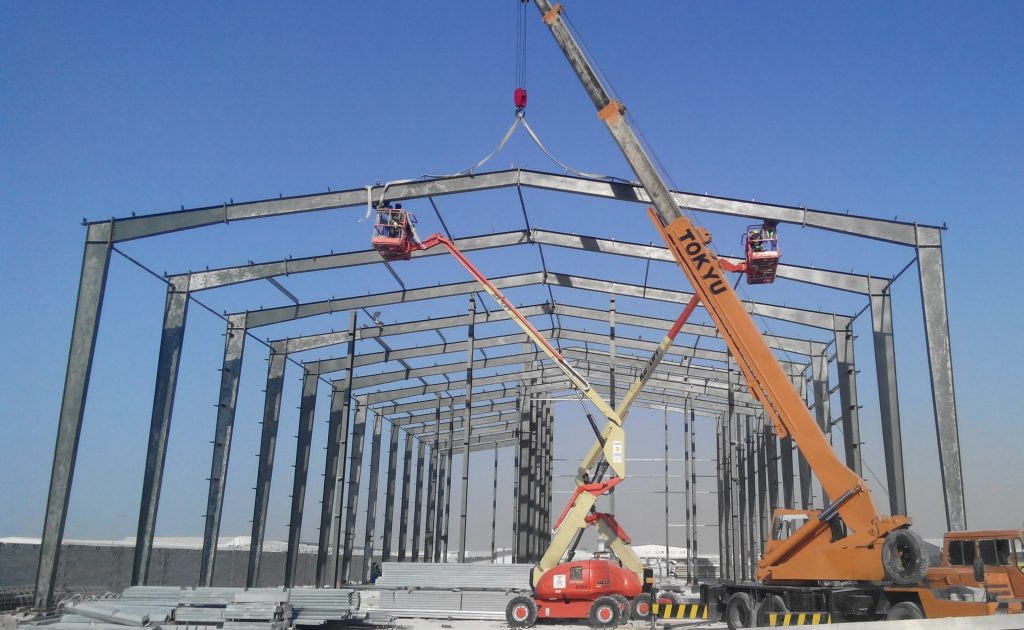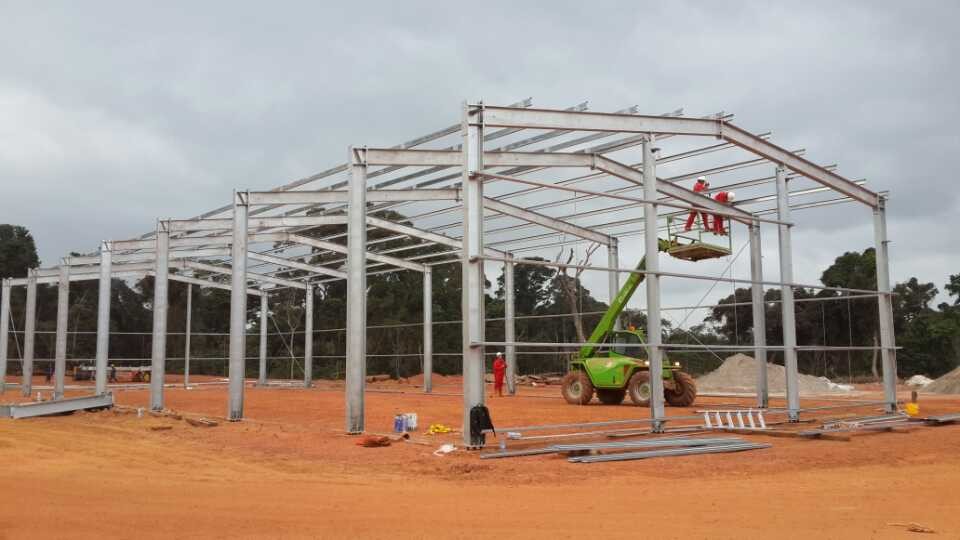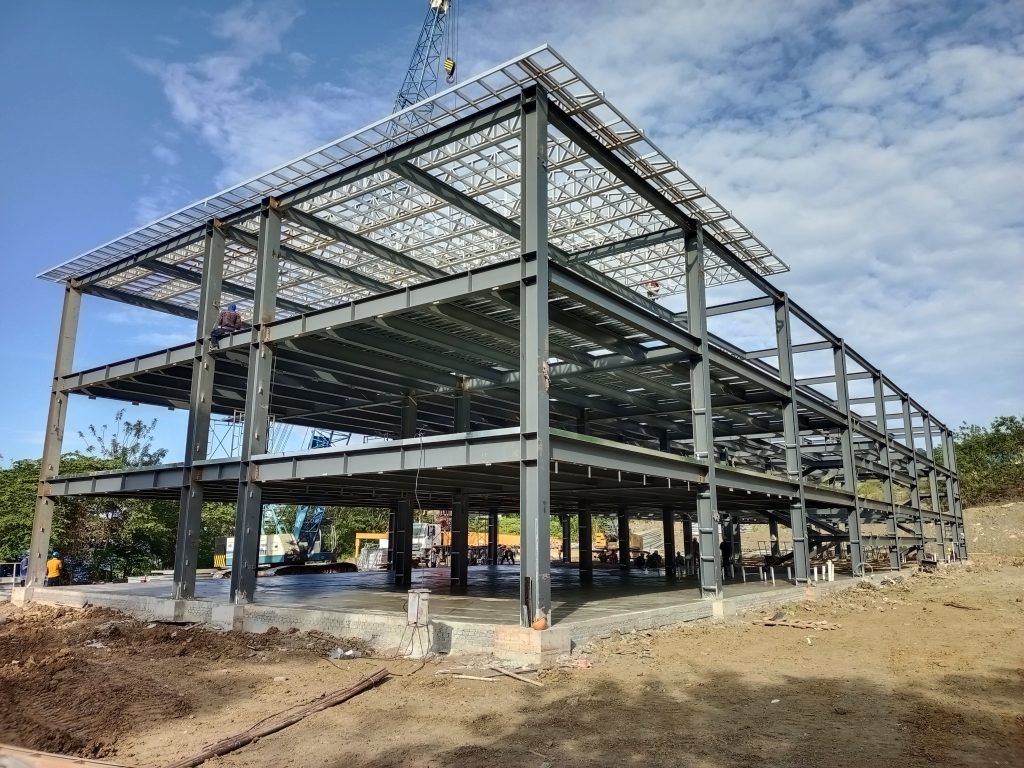Introduction
There is a growing need to develop integrated multi-use farm models optimized for remote and challenging locations. This can help stabilize livelihoods dependent on agriculture in areas vulnerable to climate stresses and market isolation. However, constructing specialized infrastructure at scale-appropriate sizes for remote integrated farms faces unique challenges.
This journal examines how Lida Group addresses these issues through innovative integrated steel structure configurations combining on-site housing, livestock shelter and basic processing facilities. Case studies from projects in Southeast Asia demonstrate the adaptability, cost efficiencies and replication potential enabled for developing specialized infrastructure suited to remote integrated farm operations.
Findings provide evidence supporting continued advancement of modular integrated building configurations as scalable solutions for semi-mechanized remote multi-use agriculture worldwide. Such innovations aim to strengthen rural livelihood resilience by streamlining operations through optimized multi-functional infrastructure configurations.

Multi-Use Farm Complex, Philippines
The first case study profiles a mountain-situated integrated farm complex in the Philippine Cordillera mountain range developed by Lida Group. The area faces seasonal typhoons, landslides and lacks road access 6 months yearly due to monsoon rains.
To support coffee, vegetable and small livestock production, Lida developed an interconnected modular structural configuration comprising:
– Load-bearing steel columns, rafters and arched mini-trusses forming a continuous shelter enclosure
– Integrated worker housing units, livestock stalls and a basic wet-processing facility
– Prefabricated wall and roof cladding panels enabling modular on-site assembly
Structural optimization used prefabricated members shipped by helicopter. A continuous shelter enclosure consolidated functions for space efficiency while load-bearing galvanized steel resisted natural hazards better than alternatives. Modular units enabling scalability at each farm site based on current/planned operations.

Compared to dispersed single-use buildings, the integrated configuration reduced construction timelines by 5 months and costs by 15% while optimizing space. Structural resilience allowed uninterrupted operations through yearly typhoons with minimal repairs. Interconnected layout streamlined logistics for laborers, livestock and facilities management.
Easy expandability as the farm scaled helped recoup 30% higher capital costs within 3 years. Integrated multi-functional sheltering through optimized prefabricated configurations realized efficiencies suited for remote specialized agriculture ventures. This case demonstrates adaptability of the approach for subsistence integrated farms worldwide.
Livestock Shelter with Feed Mill, Indonesia
The second case examines an integrated poultry farm established in remote Central Java, Indonesia. The area faces regular flooding, soil degradation and lacks local markets for scale-appropriate processing infrastructure.
Working with farmers, Lida developed a structural configuration combining:
– An elevated reinforced concrete foundation and modular steel columns
– Continuous roof trusses and siding enclosing poultry housing, fodder storage and a basic grinding/pelleting feed mill
– Operable partitions, windows and roller doors enabling subdivision or expansion
Elevating the structure on load-bearing steel columns anchored to concrete protected investments against seasonal flood risks. Continuous sheltering optimized functions within the facility while modular panel construction reduced on-site time by 30% versus cast-in-place alternatives.

Resulting efficiencies enabled a scale suitable for smallholders – housing 3,000 birds initially with capacity for gradual expansion. Co-locating milling facilities alongside livestock improved feed quality/ hygiene while creating local market access. Integrated multi-use sheltering streamlined daily operations requiring only 1-2 farmers to manage.
After 4 seasons of stable production even during flooding, payback was reached within 2 years versus standalone designs. Higher incomes stabilized farmer livelihoods in the remote region. These findings demonstrate adaptability of the integrated structural configuration approach even for processing co-located with remote livestock operations.
Discussion and Conclusions
Through examination of these two case studies, this journal highlights the adaptability and advantages enabled by Lida Group’s proprietary integrated steel structural configurations specialized for remote multi-use farm infrastructure development.
Key findings regarding technical viability and suitability for replication include:
– Modular prefabricated construction accelerates timelines by 30-50% compared to cast-in-place equivalents
– Continuous sheltering realizing 15-30% capital and operational efficiencies through consolidated functions
– Foundation/column elevations safeguard investments against climate hazards such as flooding
– Scalable and adjustable enclosures enable simple expansion/addition of farm components
– Streamlined logistics and daily management requiring fewer full-time workers
– Payback periods of 2-3 years recoup additional engineering/material startup expenses

Given ongoing threats from climate change and a need to optimize remote specialized agriculture, integrated multi-functional infrastructure solutions will remain relevant globally. Continued advancement of standardized modular configurations may yield dissemination at scale to stabilize rural livelihoods through semi-mechanized integrated farm models. Evidence from these cases highlight such designs as viable options supporting development of climate-resilient remote specialized agriculture worldwide.

Related news
-
Researchers analyze prototypes for versatile farm structures constructed using Lida Group's reusable hot-dip galvanized steel framing systems integrated with durable cladding materials.
2024-08-22 09:28:40
-
Installation Drawing or Guide on Site Container House Prefabricated Building
2024-08-21 17:44:43
-
Prefab House Assembly Detachable Container Construction Site Color Steel Two-Story Dormitory Customization
2024-08-20 17:35:36
contact us
- Tel: +86-532-88966982
- Whatsapp: +86-13793209022
- E-mail: sales@lidajituan.com


